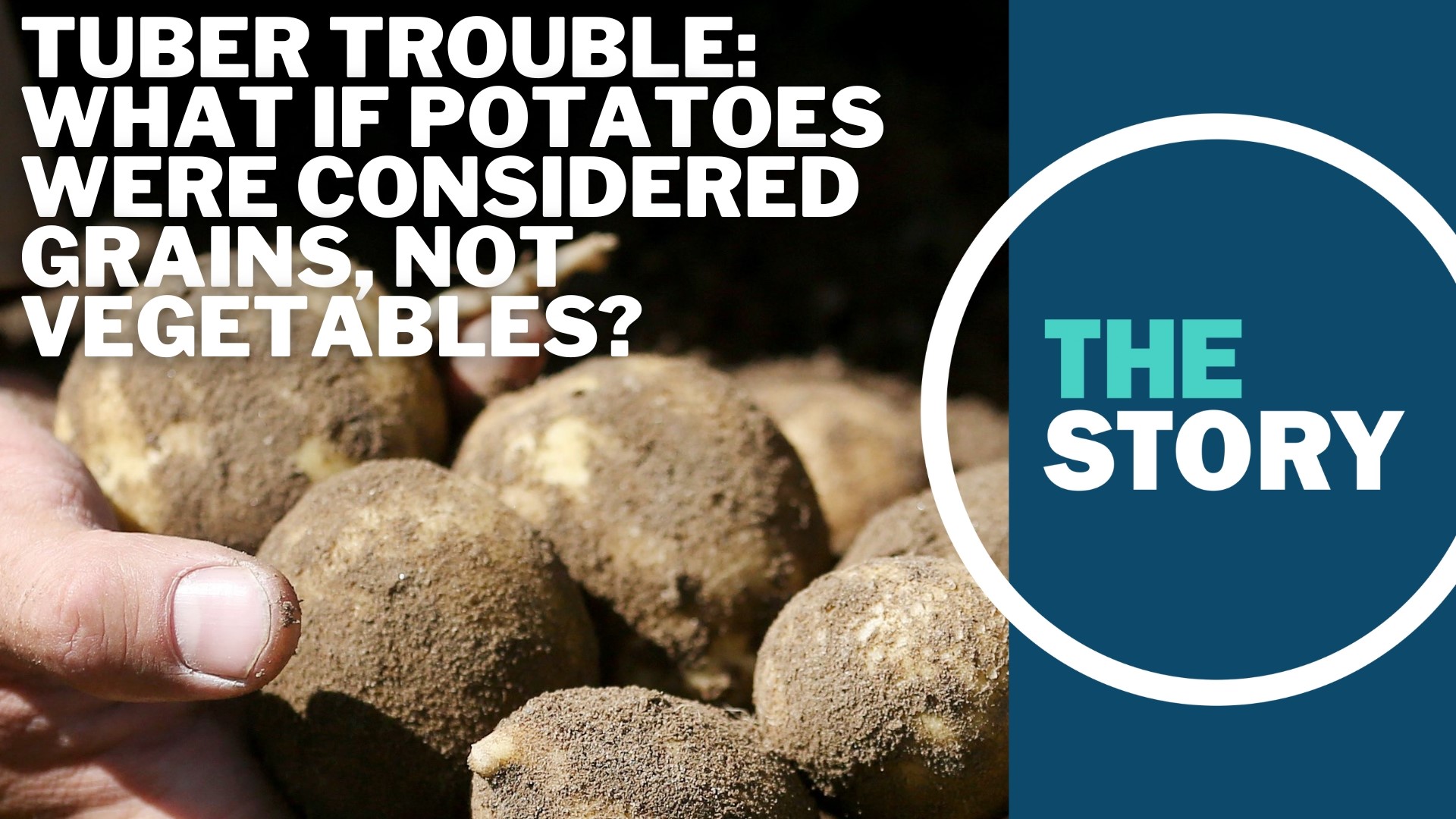OREGON, USA — Potatoes — say it with us — boil’ em, mash ‘em, stick ‘em in a stew.
But in your day-to-day life, how much do you really think about potatoes? Cody Fazio thinks about them a little more than average.
“I’m a fourth-generation farmer,” Fazio said. “My great grandfather came to Sauvie Island in 1942; we've been growing potatoes here ever since.”
It's early in the potato season, with seed potatoes having just gone into the ground.
“Then, we'll water them up and we'll harvest them in September and October,” Fazio concluded.
By this time next year, these sprouts will be full-sized potatoes, headed out to your grocery store — and in that time, they may also move to a new food group.
The U.S. Dietary Guidelines Advisory Committee is considering changing up how we think about potatoes. Right now, they’re considered vegetables. Next year? They could be part of the grain food group.
The Dietary Guidelines Association gets together every five years to talk about how Americans eat. The committee is made up of 20 doctors and scientists from across the country, who have been working to develop nutrition guidelines for the next five years.
Those dietary guidelines are the backbone of the country’s nutrition policy. The U.S. Department of Agriculture (USDA) and Health and Human Services (HHS) work together to publish the guidelines.
The next ones are due in Jan. 2025. They influence everything from school lunches to WIC policies to what kind of food gets federal research funding.
What is a potato?
Right now, white potatoes are considered “starchy vegetables.”
But the humble spud found itself at the center of some debate in recent years: The World Health Organization excludes it from their vegetable recommendations. Harvard’s School of Public Health kept potatoes out of their vegetable category, writing, “Potatoes — unlike vegetables like lettuce and carrots — can cause blood sugar to spike and raise the risk of weight gain and diabetes.” The UK’s Eatwell Guide lumps them in with bread, cereal and pasta.
But if you ask potato growers here in the Northwest?
“It’s part of the plant that you eat. It's a vegetable,” Fazio declared.
Gary Roth from the Oregon Potato Commission agrees: “Potatoes are certainly a vegetable.”
Senators from the Northwest sent a letter to the USDA, writing, “The scientific justification behind the assertion that potatoes are not vegetables is not strong, and there are documented nutritional benefits of potatoes.”
Which is true: a medium-sized potato has about 170 calories, five grams of protein and about three grains of fiber.
“What people don't realize is there's more potassium in a potato than a banana; there's as much protein in a potato as an egg, as much vitamin C in a potato as a grapefruit,” said Fazio.
However, a large egg raw or cooked can actually have double the amount of protein compared to a medium-sized potato, according to the USDA, so eating two potatoes could match the protein of one egg.
Of course, that’s not the case if you’re mainly eating the French fries and potato chips, but potatoes are versatile — they’re used in lots of cultures, and they’re cheap.
Will a change affect farming industry, consumers?
Potato farming is a big industry in the Northwest.
“Idaho's No. 1, Washington’s No. 2, and depending on the year, Oregon is either No. 4 or 5,” said Roth.
Oregon’s potato farmers worry that if their darling root vegetable is reclassified, it’ll cause confusion for their customers.
“Consumers recognize vegetables for what they are. They recognize potatoes as a vegetable, and they would be, I think, really confused if they started to look for potatoes in the bread aisle,” Roth said.
And they worry that potato growers could lose out on some of that federal research funding.
“There’s constantly investment being made into developing potatoes that can just be grown as simply as possible, and I believe that a lot of that would really go away,” Roth said.
For now, they’re just doing what farmers do: waiting, ready to deal with whatever the season brings from their fields and the federal government.
But Fazio is undaunted. “I knew I wanted to farm since I was 5 years old, and I love every day of it,” he said.

